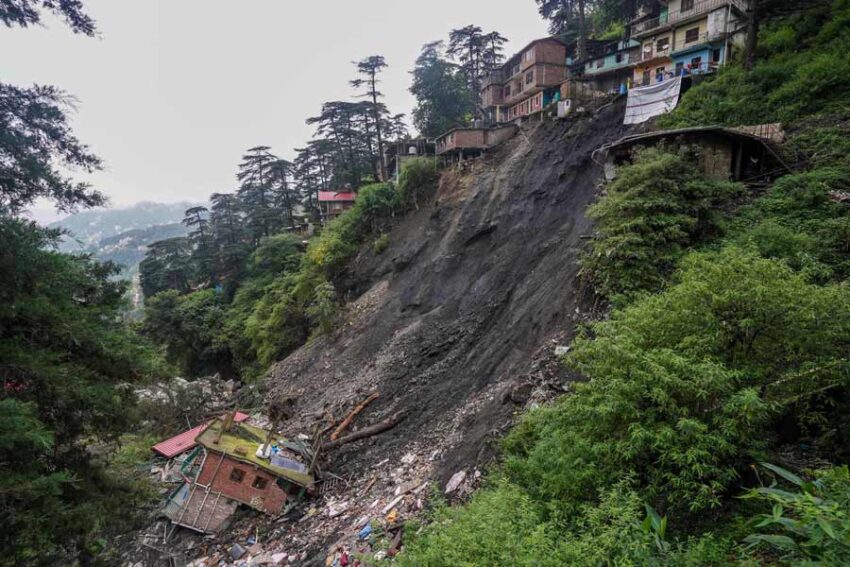Tuesday, April 16, 2024

Indonesia’s Sulawesi Island was struck by a devastating natural disaster when landslides, triggered by intense rainfall, swept through two villages in the Tana Toraja region. The calamity resulted in the tragic loss of at least 18 lives, with two individuals still missing and another two in critical condition in the hospital. The landslides, which also destroyed four homes, have sparked extensive rescue operations, involving local authorities and police sniffer dogs to search for survivors among the debris.
Immediate Impact and Rescue Efforts
The landslides affected the mountainous region of Tana Toraja, approximately 300 km from the provincial capital of Makassar. The local government and rescue teams have been working tirelessly, navigating through adverse weather conditions and damaged infrastructure to reach those affected. The response efforts have been significantly hampered by damaged roads, making it difficult for emergency vehicles, including ambulances, to access the area and evacuate victims.
Photos released by the country’s disaster mitigation agency show a grim scene of flattened homes and scattered rubble, with rescuers diligently searching for survivors. The local community and emergency teams are engaged in a desperate race against time to locate the missing individuals and provide aid to those who have been displaced or injured.
Broader Implications for Sulawesi’s Tourism Industry
Sulawesi Island, known for its picturesque landscapes and unique cultural heritage, particularly in the Tana Toraja region, has been developing its tourism sector as a key economic driver. However, the recent landslides pose a severe threat to this growth. The destruction of infrastructure and potential safety concerns may deter tourists, impacting local businesses and livelihoods that depend heavily on tourism revenues.
The disaster also raises questions about the preparedness of the region to handle such emergencies, especially during the peak rainy season which began in January. With the meteorological agency forecasting heavy rains particularly on the islands of Java and Sumatra, there is an urgent need for comprehensive disaster preparedness and mitigation strategies to safeguard both residents and visitors.
Historical Context and Future Concerns
Indonesia is no stranger to natural disasters, with a history marked by volcanic eruptions, earthquakes, and tsunamis. Just last month, floods and landslides on Sumatra Island killed at least 26 people, underlining the archipelago’s vulnerability to such events. The frequency and intensity of these disasters are concerning, not only because of the immediate humanitarian impacts but also due to the long-term effects on Indonesia’s tourism industry.
Tourism, particularly in regions like Sulawesi, offers a significant opportunity for economic development. However, the sustainability of this sector is heavily dependent on the ability of local and national governments to effectively manage and respond to natural disasters. This includes improving infrastructure, implementing strict building codes in vulnerable areas, and enhancing the local communities’ capacity to respond to emergencies.
Response and Recovery: A Path Forward
In the aftermath of the landslides, the focus is firmly on rescue and recovery efforts. However, it is crucial for stakeholders, including government bodies, tourism operators, and local communities, to also consider long-term strategies to rebuild and revive the tourism industry in the affected regions. This involves not only restoring physical infrastructure but also building resilience against future disasters.
Public relations campaigns may also be necessary to restore confidence among potential tourists, emphasizing the safety measures and scenic allure of Sulawesi. Collaborative efforts between the government, private sector, and international agencies can help in funding and implementing these recovery strategies, ensuring that Sulawesi remains a safe and appealing destination for travelers.
Conclusion
The tragic landslides on Sulawesi Island highlight the challenges of managing natural disasters in tourist regions. As Indonesia continues to promote its natural beauty and cultural richness to the world, it must also prioritize safety and sustainable tourism practices. The recovery from this disaster provides an opportunity to strengthen disaster response mechanisms and infrastructure, ensuring that Sulawesi, and Indonesia at large, can continue to welcome tourists safely and confidently, even in the face of natural adversities.
Monday, April 29, 2024
Monday, April 29, 2024
Tuesday, April 30, 2024
Tuesday, April 30, 2024
Tuesday, April 30, 2024
Monday, April 29, 2024